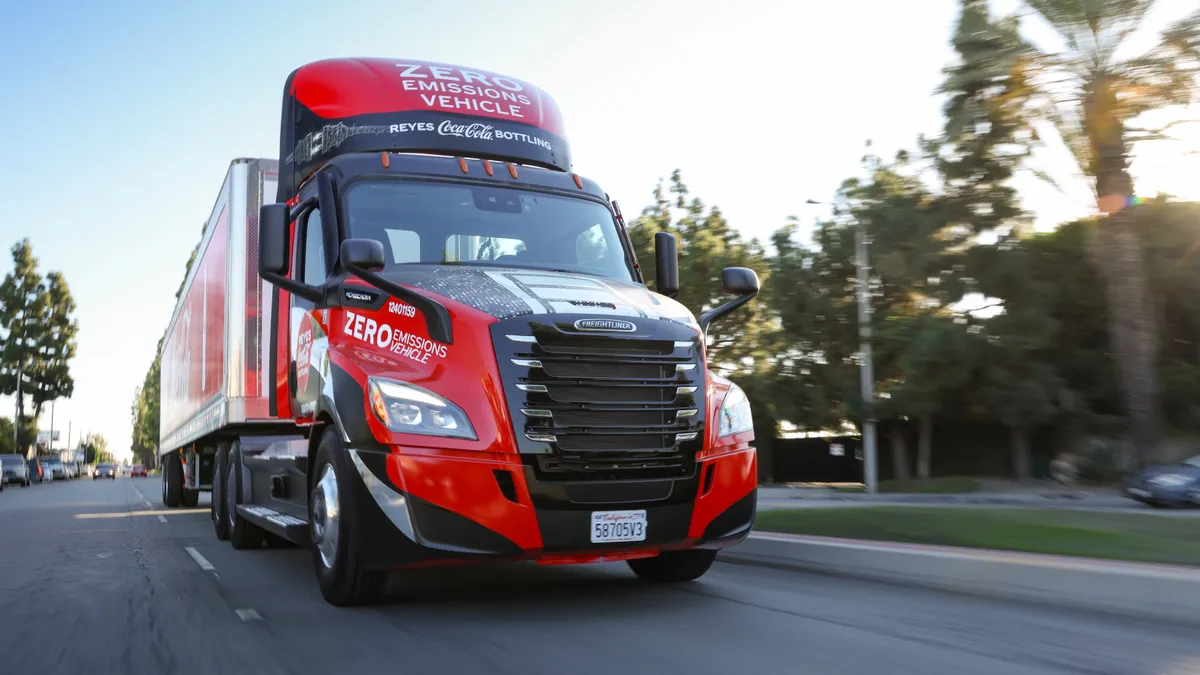Amid possible changes to federal emissions standards for tractor-trailers, Germany-based Daimler Truck and U.S.-based Cummins voiced support for their plans to meet standards in reducing pollution.
Potential policy changes reiterate a need for regulatory certainty with a single, national standard, Cummins said in an email to Trucking Dive, and Daimler’s new CEO suggested on an earnings call last week that Environmental Protection Agency standards likely will stay in place.
Industry groups suggested President-elect Donald Trump could return more favorable policies to the trucking industry, and the American Trucking Associations last week called on the new administration to scale back the EPA’s Phase 3 greenhouse gas emissions standards for model year 2027 tractors and beyond.
Daimler also said it was too early to say whether potential tariffs would affect its truck and bus business, leadership said on a quarterly earnings call, following campaign pledges by Trump to protect U.S. businesses.
“We want to shape the industry on its path to sustainability,” Daimler Truck CEO Karin Rådström said in opening remarks, “and I believe it’s a historic moment in time to be in this industry when we can take decisions which make low-carbon road transport a reality.”
Rådström added that regarding the EPA, she doesn’t expect any changes, suggesting standards will remain.
Other OEMs didn’t immediately respond or were more cryptic when asked by Trucking Dive about what the U.S. election results mean for their emissions plans.
Cummins and some other manufacturers have shown support for the emissions standards in the past, even as carriers have raised concerns about cost, practicality and timelines.
The engine manufacturer said a “change in leadership does not impact our continued practices of educating about the opportunities and challenges our industry faces.”
The EPA’s Phase 3 “ambitious goal ... will take all the industry and all levels of government working together to be successful,” the OEM added. “Cummins is uniquely positioned to develop and manufacture a broad range of technologies that enable our customers to prosper, wherever they are along their energy transition journey.”
The Columbus, Indiana-headquartered firm said it acknowledged “abrupt changes to policies could jeopardize the ability of companies to invest and deploy long-term technology development.”
“Cummins believes that strong, clear, enforceable and achievable standards are imperative — that’s why we continue to support a single national standard that equitably recognizes all technologies and fuels and provides regulatory certainty,” the company said.












